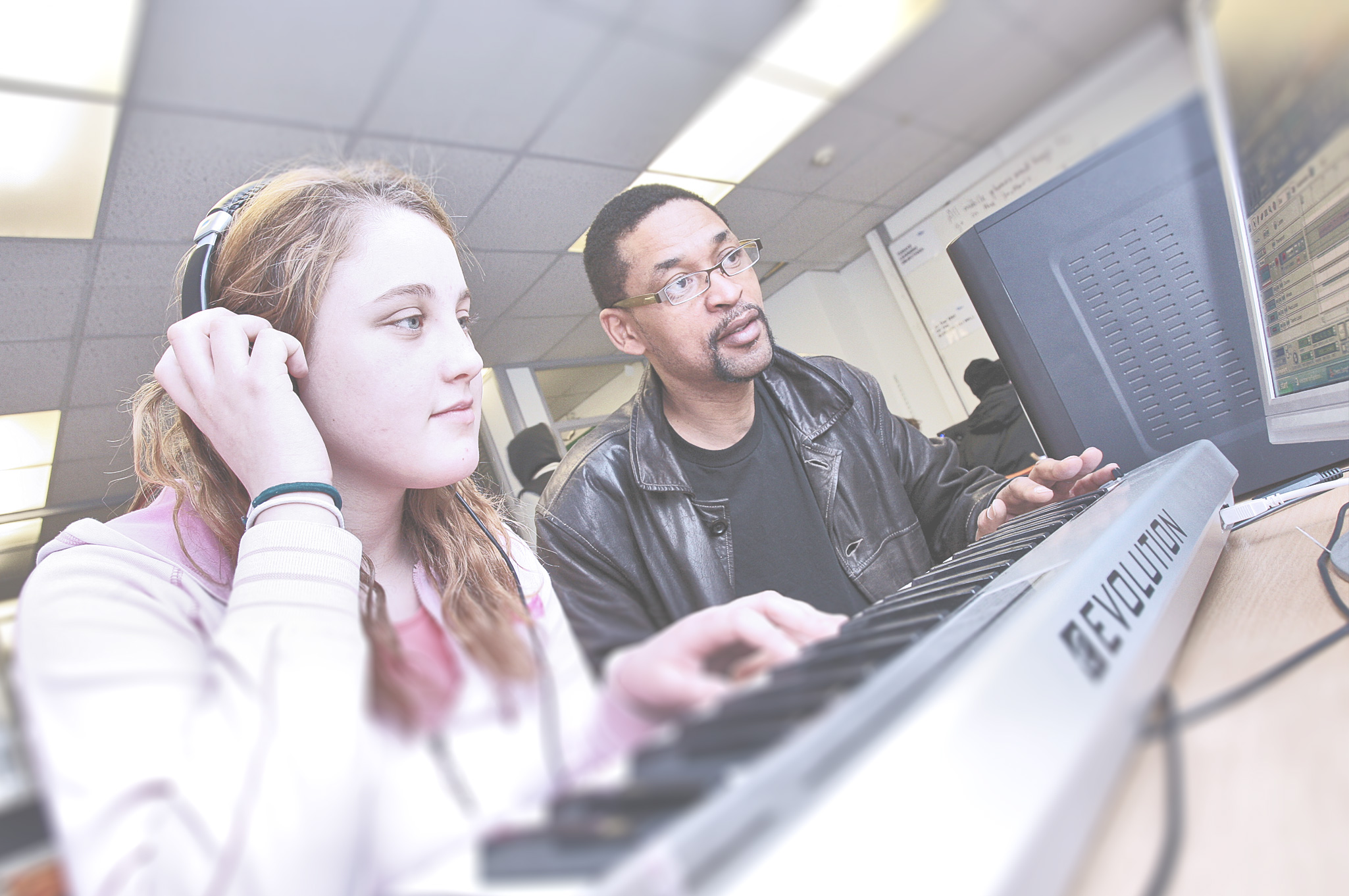MISSION STATEMENT
CAREERS EDUCATION, INFORMATION, ADVICE AND GUIDANCE, and WORK-RELATED EDUCATION.
STATUTORY GUIDANCE
Framework for Careers, Employability and Enterprise Education.
Education Act (2011) and the subsequent Statutory Guidance ‘Careers guidance and
inspiration for young people in schools’(DfE 2015)
Raising the Participation Age (Education and Skills Act 2011)
The Career Development Institute Code of Ethics
All students in years 7-13 are entitled to:
Access to a planned careers programme relevant to their year group.
Access to a comprehensive and impartial guidance on course selection with links to careers and employability at every transition point.
Access to a qualified, impartial and independent careers adviser for personalised guidance
Access to information about the world of work and labour market.
Access to information and guidance about higher education, training and employment opportunities including technical education qualifications and apprenticeships.
Development of their personal and enterprise skills to improve their employability.
Information about technical education qualifications and apprenticeship opportunities.
To hear from a range of local providers about the opportunities they offer, including technical education and apprenticeships.
To receive information about how to make applications for the full range of academic and technical courses.
Access to a curriculum rich in information about careers and the world of work.
Access a programme which challenges stereotypes and discrimination, and promotes equality and diversity in training and in the workplace.
COMMITMENTS AND OBJECTIVES
We aim to enable young people to learn about careers, learning and work so that they can manage their own development and make life choices and decisions that will benefit their own wellbeing and contribute to the wellbeing of others. We take a skills-centred approach to providing guidance and support. SV Academy aims to deliver a broad, balanced curriculum that addresses young people’s entitlement and provides students with personal, social and employability skills alongside the knowledge and understanding to support self-development through careers and work-related education (understanding themselves and the influences on them).
SV Academy is firmly committed to delivering a Careers, Enterprise Information and Guidance programme. It is our commitment to continuously work towards delivering a progressive programme that meets all of the benchmark’s objectives outlined below:
1. A stable careers programme
Every school should have a stable, structured careers programme that has the explicit backing of the senior management team, and has an identified and appropriately trained person responsible for it.
The careers programme should be published on the school’s website in a way that enables pupils, parents, teachers and employers to access and understand it.
The programme should be regularly evaluated with feedback from pupils, parents, teachers and employers as part of the evaluation process.
2. Learning from career and labour market information
Every student, and their parents, should have access to good quality information about future study options and labour market opportunities. They will need the support of an informed adviser to make best use of available information.
Parents should be encouraged to access and use information about labour markets and future study options to inform their support to their children.
By the age of 14, all pupils should have accessed and used information about career paths and the labour market to inform their own decisions on study options.
3. Addressing the needs of each student
Students have different career guidance needs at different stages. Opportunities for advice and support need to be tailored to the needs of each student. A school’s careers programme should embed equality and diversity considerations throughout.
A school’s careers programme should actively seek to challenge stereotypical thinking and raise aspirations.
Schools should keep systematic records of the individual advice given to each pupil, and subsequent agreed decisions.
All pupils should have access to these records to support their career development.
Schools should collect and maintain accurate data for each pupil on their education, training or employment destinations.
4. Encounters with employers and employees
Every student should have multiple opportunities to learn from employers about work, employment and the skills that are valued in the workplace. This can be through a range of enrichment activities including visiting speakers, mentoring and enterprise schemes.
Every year, from the age of 11, pupils should participate in at least one meaningful encounter with an employer. A meaningful encounter is one in which the student has an opportunity to learn about what work is like or what it takes to be successful in the workplace. Examples may include careers talks, careers carousels, careers fairs, mock interviews, CV workshops, mentoring, employer delivered workshops, enterprise competitions.
5. Experiences of workplaces
Every student should have first- hand experiences of the workplace through work visits, work shadowing and/or work experience to help their exploration of career opportunities, and expand their networks.
By the age of 16, every pupil should have had at least one experience of a workplace, additional to any part-time jobs they may have.
By the age of 18, every pupil should have had one further such experience, additional to any part-time jobs they may have.
High quality and meaningful work experience forms a required part of 16-19 study programmes. A more flexible approach can be adopted for younger pupils and does not necessarily have to involve a traditional placement. Options could include: workplace visits; work experience (1-2 weeks); job shadowing; career-related volunteering and social action.
6. Encounters with further and higher education
All students should understand the full range of learning opportunities that are available to them. This includes both academic and vocational routes and learning in schools, colleges, universities and in the workplace.
By the age of 16, every pupil should have had a meaningful encounter with providers of the full range of learning opportunities, including Sixth Forms, colleges, universities and apprenticeship providers. This should include the opportunity to meet both staff and pupils.
By the age of 18, all pupils who are considering applying for university should have had at least two visits to universities to meet staff and pupils.
A meaningful encounter is one in which the student has an opportunity to explore what it is like to learn in that environment.
We must ensure that there are opportunities for providers of approved technical education qualifications and apprenticeships to visit the school to speak to all pupils in years 8 to 13. We would expect the opportunities to include a visit from a Studio School to inform key stage 4 choices; a visit from a University Technical College to inform key stage 4 and key stage 5 choices; and visits from a range of providers of apprenticeships and technical options, including an FE college to inform key stage 4, key stage 5 and post-18 choices. Schools are not required to accept every request from a provider to visit but must demonstrate, through their policy statement on provider access, that a number of opportunities are available to all pupils in each year group from years 8 to 13.
7. Personal guidance
Every student should have opportunities for guidance interviews with a career adviser, who could be internal (a member of school staff) or external, provided they are trained to an appropriate level. These should be available whenever significant study or career choices are being made.
Every pupil should have at least one such interview by the age of 16, and the opportunity for a further interview by the age of 18.
Every pupil should have opportunities for personal guidance interviews with a qualified (to level 6 or higher) careers adviser whenever significant study or career choices are being made.
Providing a planned programme of activities for which all students from Years 7 – 13 take part and takes in to account the needs of all students.
Providing IAG which is impartial, unbiased and is based on the needs of students, showing no bias or favouritism towards a particular education or work option and ensuring all students are able to make self-determined, informed decisions.
Ensuring that the programme follows local, regional and national frameworks for good practice and other relevant guidance from DfE and OFSTED.
Providing a programme which is student centred, integrated into the whole curriculum and based on a partnership with students and their parents/carers.
Taking an inclusive approach and ensuring all students with SEN/SEND are support to access the careers programme and are supported fully in exploring all options and planning for their next steps.
Working with a range of partners to ensure students have access to impartial and independent information and guidance, throughout their time at the academy, about the range of careers and options.
Equipping students with the skills, attitudes, knowledge and understanding to manage and achieve their lifelong ambitions.
Ensuring all students are supported in accessing education, employment or training at the relevant transition points.
Helping all students to take their place as suitably qualified and responsible adults within society.
Contributing to strategies for raising achievement, especially by increasing students’ motivation.
Encouraging students to become reflective learners who are self-aware of their strengths, skills and attributes and how these link to career and life planning.
Supporting inclusion, challenging stereotypes and promoting equality of opportunity.
Encouraging participation in continued learning, including higher education and further employment and training opportunities.
Developing enterprise and employability skills in line with our Enterprise focus.
Supporting student continuation at post-16 and post-19 into education and training and thereby ensuring that the Academy contributes to reducing the numbers of students who are not in education, employment or training.
Contributing to the economic prosperity of individuals and communities so that students are prepared for a life of economic wellbeing.
Educating students about how their behaviour, attendance and learning skills are inherently linked to their career prospects, success in further study and future prosperity, thus improving overall student attendance, punctuality and behaviour across the Academy.
Working towards achieving the Quality in Careers Standard.
DELIVERY
At SV Academy, CAREERS EDUCATION is provided through a wide range of pathways. These include:
Curriculum provision within subject lessons.
Cross-curricular provision during curriculum time as part of non-subject provision such as Learning Guidance, Thematic drop-down days, assemblies and other ad hoc events.
Extra-curricular provision taking place away from the classroom including opportunities as part of clubs, trips, sports teams or community initiatives.
Individualised provision such as individual meetings with the careers advisor, learning guide or work experience.
Parental engagement such as information leaflets, parents’ evenings, options and open evenings or specialised information events.
Roles that students can play within the Academy, such as Student councillor, Student ambassador or peer mentor.
INVOLVEMENT WITH OTHER PARTNERS
To ensure an effective programme, SV Academy continues to develop and maintain close links with a range of local, national and international employers, work-based education providers, colleges and universities. SV Academy maintains a close working relationship with many other universities. In addition, SV Academy has a wide range of organisations that support our program events and initiatives, such as the Career Ready Programme, National Citizen Service, Blueprint for All, Speakers for Schools.
All partnerships and visits to the SV Academy are subject to our Safeguarding Policy and conducted with the explicit consent of the Head Teacher.
MONITORING, EVALUATION AND REVIEW
An annual review of our program is conducted by the quality assurance lead with responsibility for Careers along with the wider Careers and Enterprise team. This policy is reviewed and developed annually in discussion with students, parents, staff and other relevant partners.
Destinations data, evaluation forms, student surveys, focus groups and evidence of impact will all be collated and used to evaluate the effectiveness of the current program and inform further developments of our strategy.
ROLES, RESPONSIBILITIES AND RESOURCES
A range of resources are made available to support our Careers program including:
- Verroll Tomlinson, Quality & Curriculum Lead, member of staff responsible for planning and implementing the meaningful experiences for students with a range of further and higher education providers, technical qualification and apprenticeship training providers and local and national employers.
- Annie Sahin – Careers and Enterprise Learning Support
- Shaunnie Crook, administrator for life skills, careers and employability initiatives, main contact for all work experience.
- An assigned member of the Royal Borough of Greenwich Careers Team – Simon Connolly – will provide advice and support to the Academy and impartial careers advice and guidance for students.
- Weekly meeting time, as needed, to discuss, evaluate, review and promote CEIAG.
- Curriculum time taken from all year groups and departments for the delivery of CEIAG drop downs and bespoke careers and employability education.
- Assemblies planned and delivered across the year for years 7-13 for the implementation of the CEIAG programme.
- All staff contribute to CEIAG through their roles as tutors and subject teachers.
- Library of CIAG related resources located in the student library on the second floor
LINKS WITH OTHER POLICIES
This policy supports and is underpinned by a range of key Academy policies, including Equality and Diversity, Safeguarding and Child Protection, Special Educational Needs and Looked After Children.
MANAGEMENT OF PROVIDER ACCESS REQUESTS PROCEDURE
A provider wishing to request access should contact:
Verrol Tomlinson – Curriculum and Careers and Enterprise Lead Email: verrol@streetvibes.org






